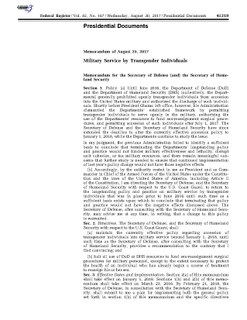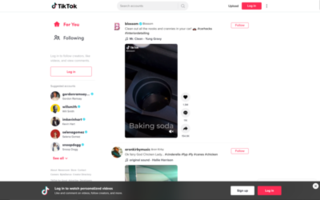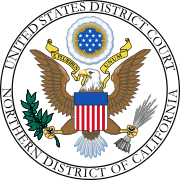The Committee on Foreign Investment in the United States is an inter-agency committee of the United States government that reviews the national security implications of foreign investments in U.S. companies or operations. Chaired by the United States secretary of the treasury, CFIUS includes representatives from 16 U.S. departments and agencies, including the Defense, State and Commerce departments, as well as the Department of Homeland Security.
WeChat is a Chinese instant messaging, social media, and mobile payment app developed by Tencent. First released in 2011, it became the world's largest standalone mobile app in 2018, with over 1 billion monthly active users. WeChat has been described as China's "app for everything" and a super-app because of its wide range of functions. WeChat provides text messaging, hold-to-talk voice messaging, broadcast (one-to-many) messaging, video conferencing, video games, sharing of photographs and videos and location sharing.

SHAREit is a peer to peer file sharing, content streaming and gaming platform that supports online and offline sharing of files and contents. It allows users access to short format videos and a wide range of games making it a multimedia entertainment app for users. It works on various smartphone platforms allowing users to share files between devices directly. SHAREit was developed as part of Lenovo at its initial stage but was later spun off and operated under a separate Singapore based technology company Smart Media4U Technology Pte. Ltd.

Executive Order 13780, titled Protecting the Nation from Foreign Terrorist Entry into the United States, was an executive order signed by United States President Donald Trump on March 6, 2017. It placed limits on travel to the U.S. by nationals of several countries and barred entry for all refugees who did not possess either a visa or valid travel documents. This executive order—sometimes called "Travel Ban 2.0"—revoked and replaced Executive Order 13769 issued on January 27, 2017. Court rulings prohibited some of its key provisions from being enforced between March 15 and December 4, 2017. During its term of effect, it was revised by two presidential proclamations.

International Refugee Assistance Project v. Trump, 857 F. 3d 554, was a 2017 decision of the United States Court of Appeals for the Fourth Circuit, sitting en banc, upholding an injunction against enforcement of Executive Order 13780, titled "Protecting the Nation from Foreign Terrorist Entry into the United States", an executive order signed by US President Donald Trump on March 6, 2017. The order places limits on travel to the U.S. from certain countries, and by all refugees who do not possess either a visa or valid travel documents. It revoked and replaced the President's January Executive Order 13769, which courts had also found illegal.
Trump v. Hawaii, No. 17-965, 585 U.S. ___ (2018), was a landmark United States Supreme Court case involving Presidential Proclamation 9645 signed by President Donald Trump, which restricted travel into the United States by people from several nations, or by refugees without valid travel documents. Hawaii and several other states and groups challenged the Proclamation and two predecessor executive orders also issued by Trump on statutory and constitutional grounds. Citing a variety of statements by Trump and administration officials, they argued that the proclamation and its predecessor orders were motivated by anti-Muslim animus.

ByteDance Ltd. is a Chinese internet technology company headquartered in Beijing and incorporated in the Cayman Islands.

The Presidential Memorandum on Military Service by Transgender Individuals, officially the Presidential Memorandum for the Secretary of Defense and the Secretary of Homeland Security, is the 27th presidential memorandum signed by U.S. President Donald Trump on August 25, 2017. The intent was to prevent transgender people from serving in the U.S. military, on the basis that they would be a financial burden due to sex reassignment procedures and associated costs. It did not exclude transgenders indiscriminately. Federal courts delayed the implementation of this rule by issuing four injunctions. On January 22, 2019, however, the U.S. Supreme Court allowed the Trump administration's ban to take effect.

TikTok, known in China as Douyin, is a short-form video hosting service owned by Chinese company ByteDance. It hosts a variety of short-form user videos, from genres like pranks, stunts, tricks, jokes, dance, and entertainment with durations from 15 seconds to ten minutes. TikTok is an international version of Douyin, which was originally released in the Chinese market in September 2016. TikTok was launched in 2017 for iOS and Android in most markets outside of mainland China; however, it became available worldwide only after merging with another Chinese social media service, Musical.ly, on 2 August 2018.

Carl John Nichols is a United States district judge of the United States District Court for the District of Columbia.
Laurel Beeler is currently a U.S. Magistrate Judge of the United States District Court for the Northern District of California.

Likee is a short-video creation and sharing app, available for iOS and Android operating systems. It is owned by Singaporean tech firm BIGO Technology, whose parent company is JOYY Inc., a Chinese firm listed on NASDAQ. The founder of Likee is Jason Hu, entrepreneur from Singapore, who previously worked for JOYY.
BigoLive is a live streaming platform owned by a Singapore-based Bigo Technology, which was founded in 2014 by David Li and Jason Hu. As of 2019, Bigo Technology is owned by JOYY, a Chinese company listed on the NASDAQ.

CamScanner is a Chinese mobile app first released in 2011 that allows iOS and Android devices to be used as image scanners. It allows users to 'scan' documents and share the photo as either a JPEG or PDF. This app is available free of charge on the Google Play Store and the Apple App Store. The app is based on freemium model, with ad-supported free version and a premium version with additional functions.

Triller is an American video-sharing social networking service. The service allows users to create and share short-form videos, including videos set to, or automatically synchronized to music using artificial intelligence technology. Triller was released for iOS and Android in 2015, and initially operated as a video editing app before adding social networking features.

TikTok v. Trump was a lawsuit before the United States District Court for the District of Columbia filed in September 2020 by TikTok as a challenge to President Donald Trump's executive order of August 6, 2020, prohibiting the usage of the application in five stages, the first being the prohibition of downloading TikTok. On September 27, 2020, a preliminary injunction was issued by Judge Carl J. Nichols blocking enforcement of that executive order. The lawsuit, by then captioned TikTok v. Biden, was dismissed in July 2021, following the Biden Administration's rescission of the executive order.
Multiple governmental agencies and private business have imposed or attempted impose bans on the social media service TikTok. Countries like India and the United States have expressed concerns about the app's ownership by the Chinese company, ByteDance, attempting to ban it from app stores. Countries such as Indonesia and Bangladesh have banned it on the basis of pornography-related concerns, while others like Armenia and Azerbaijan have implemented restrictions to mitigate the spread of information which could lead to conflict. Syria has banned it allegedly because of human trafficking, crossing the borders it shares, into Europe and other countries.
Moj is an Indian video-sharing social networking service owned by Bangalore-based Mohalla Tech Pvt Ltd. It features special effects, emoticons, stickers and short videos that have a duration of 15 seconds to one minute under genres like dance, travel, singing, acting, comedy, and education. Moj allows users to download videos, and it supports 15 languages. Moj was released almost immediately after TikTok was banned by the Indian Government, and more than 100 million users downloaded it in just 6 months.
Censorship on TikTok affects material published by people on the Chinese social media platform TikTok. There is evidence that TikTok has down-weighted the posts of political dissidents, LGBTQ+ people, disabled people, and certain African-American hashtags. TikTok's explanations for this vary, ranging from attempting to protect users from bullying to algorithmic mistakes.

In 2020, the U.S. government announced that it was considering banning the Chinese social media platform TikTok upon a request from then-U.S. president Donald Trump, who viewed the app as a national security threat. The result was that TikTok owner ByteDance—which initially planned on selling a small portion of TikTok to an American company—agreed to divest TikTok to prevent a ban in the United States and in other countries where restrictions are also being considered due to privacy concerns, which themselves are mostly related to its ownership by a firm based in China.











